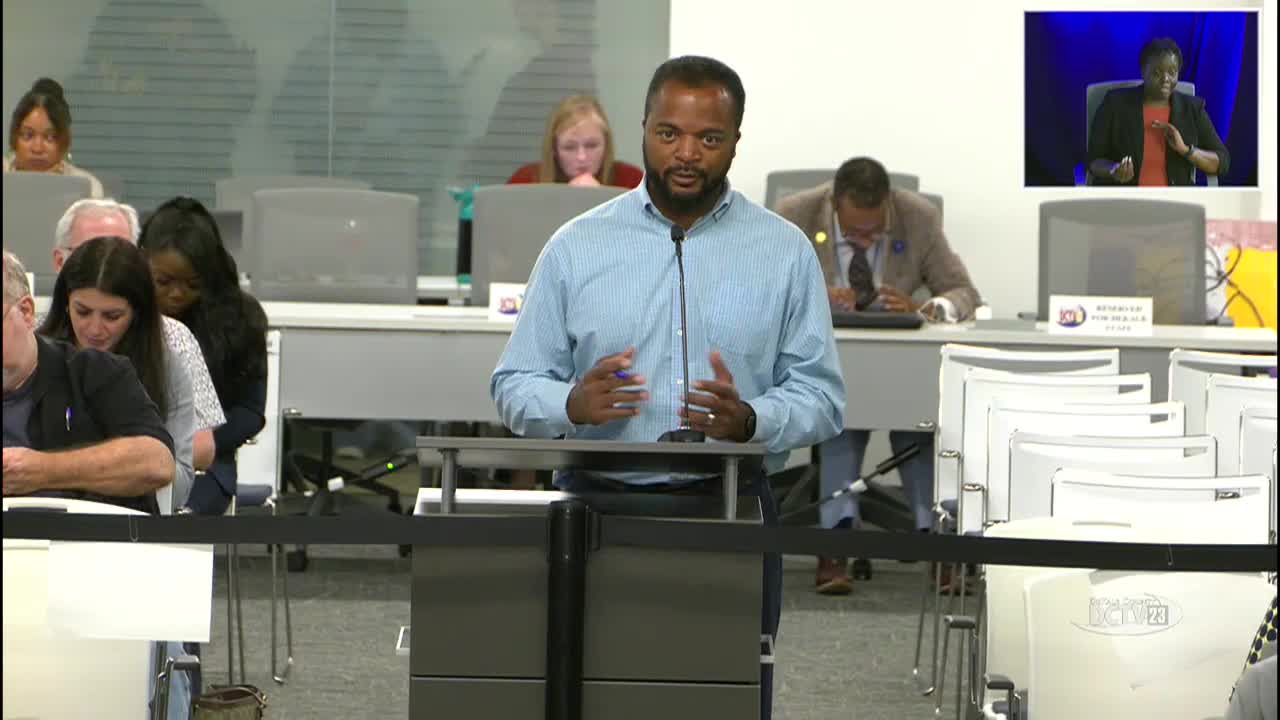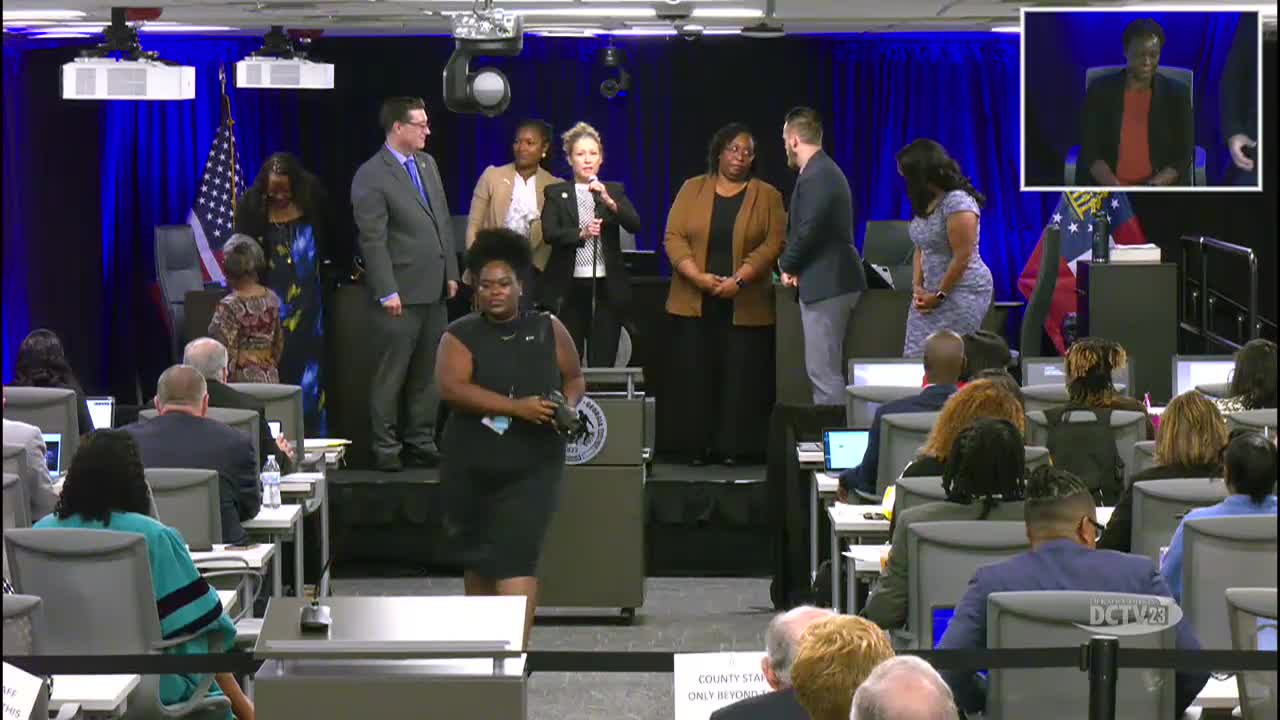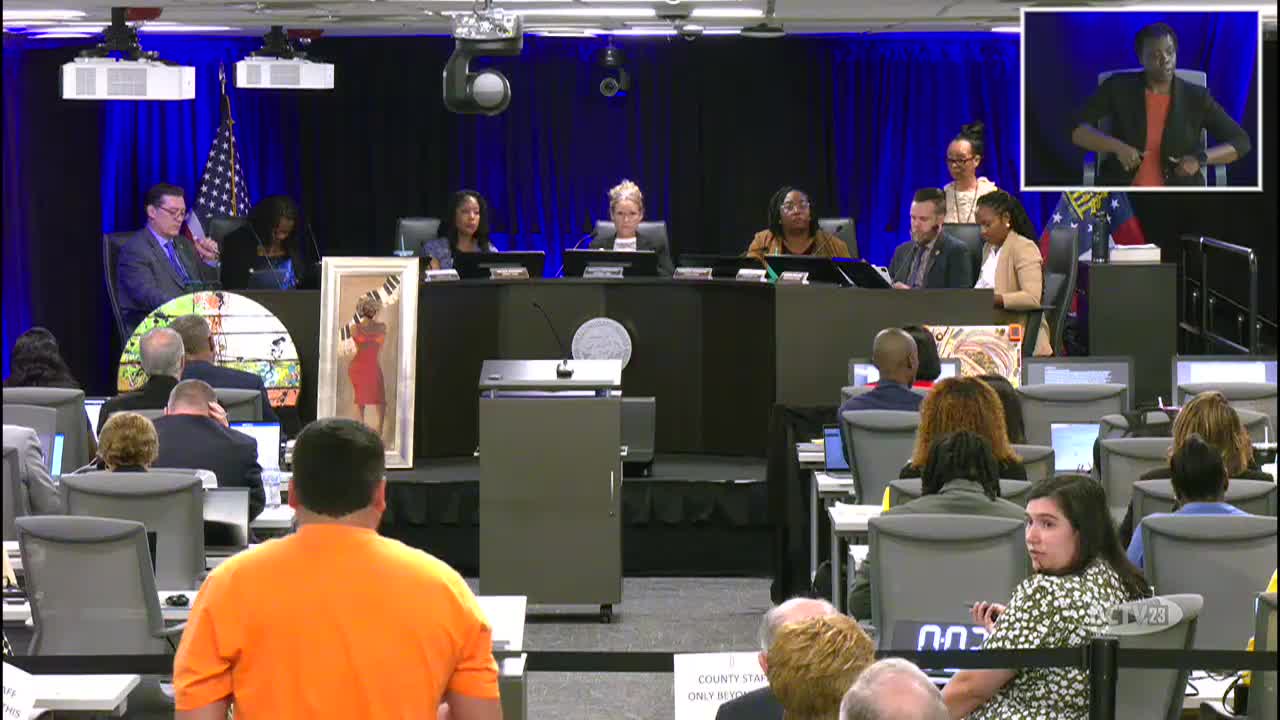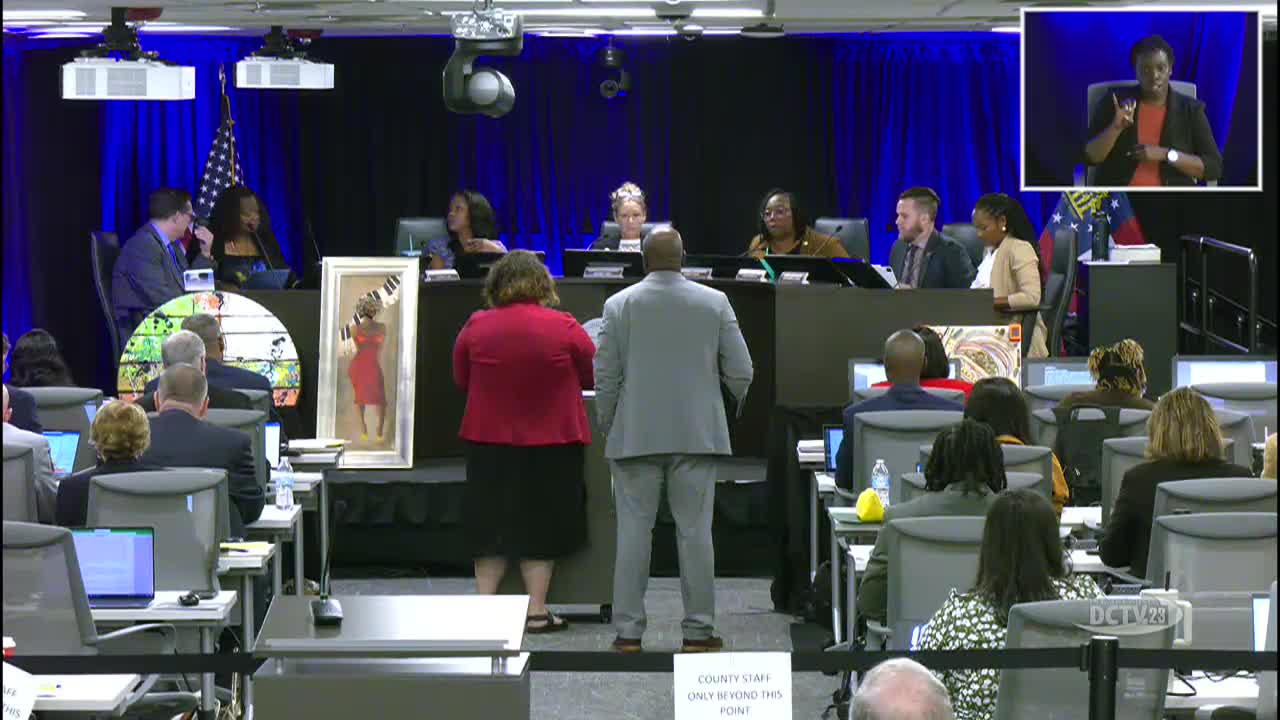Article not found
This article is no longer available. But don't worry—we've gathered other articles that discuss the same topic.

Votes at a glance: highlights and board actions from the Sept. 9 DeKalb County meeting

DeKalb proclaims September Suicide Prevention and Awareness Month after judge, residents share personal accounts

Union and residents urge DeKalb to tighten procurement rules, flag vendor with federal convictions

